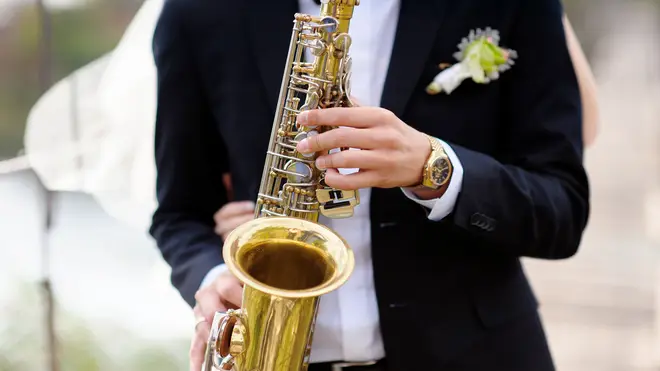‘No singing, no wind instruments’, says government guidance for post-lockdown weddings
2 July 2020, 12:24 | Updated: 2 July 2020, 17:46

Government guidelines on weddings, released as lockdown measures around coronavirus ease in England, recommend against certain types of music-making. Here’s what you can and can’t do.
The British government has announced new guidance for marriages and civil partnerships in England, which ban singing, chanting and playing some musical instruments.
The rules, which take effect from 4 July, come as the total number of coronavirus cases in the UK now stands at 313,483.
An estimated 250,000 ceremonies took place in the UK each year before COVID-19 hit, and during the pandemic many were cancelled as large gatherings were banned. Now the new guidelines allow some hope for couples, but do remain restrictive – particularly for wedding musicians.
Click here to view the latest coronavirus advice from the NHS >
Read more: Glyndebourne to stage outdoor opera with live audience this summer >

Singing waiters shock wedding guests with a surprise blast of ‘Nessun dorma’
What are the new rules for music at marriages and civil partnerships?
The government says, “People should avoid singing, shouting, raising voices and/or playing music at a volume that makes normal conversation difficult or that may encourage shouting,” citing “the potential for increased risk of transmission from aerosol and droplets.” Later on they say that non-wind instruments and non-singers, e.g. the organ, is okay.
Here is the government’s advice concerning music at weddings:
To keep guests safe and lower the risk of transmission, small ceremonies are allowed, but should adhere to the following COVID-19 guidelines:
• Avoid singing, chanting, shouting, raising voices and/or playing music at a volume that may encourage this – even if social distancing is being observed or face coverings are used;
• Spoken responses during marriages or civil partnerships should not be in a raised voice;
• The playing of musical instruments that are blown into should be specifically avoided, due to the increased risk of infection;
• The playing of musical instruments that are not blown into, such as organs and pianos, are permitted – but these should be cleaned thoroughly before and after use;
• Where required, only one individual should be permitted to sing or chant, and the use of plexi-glass screens should be considered to protect guests as they are easily cleaned and will further prevent transmission;
• As communal singing is no longer permitted, recordings are encouraged if these are available.
Read more: What music should you have at your wedding? >

String Quartet Performs Amazing Cover of Michael Jackson's 'Man In The Mirror'
With thousands of musicians struggling to find work and meet their financial needs during the coronavirus pandemic, the new guidelines surrounding weddings and civil partnerships are likely to pose further challenges.
However, belief ceremonies, blessings, or other non-statutory ceremonies are not covered by the rules, and those wishing to conduct them have been encouraged to refer to the government’s separate guidance on gatherings.
Weddings set to go ahead should now be held in a COVID-19 secure environment with social distancing, kept as short as reasonably possible, and with no more than 30 guests in attendance.


































